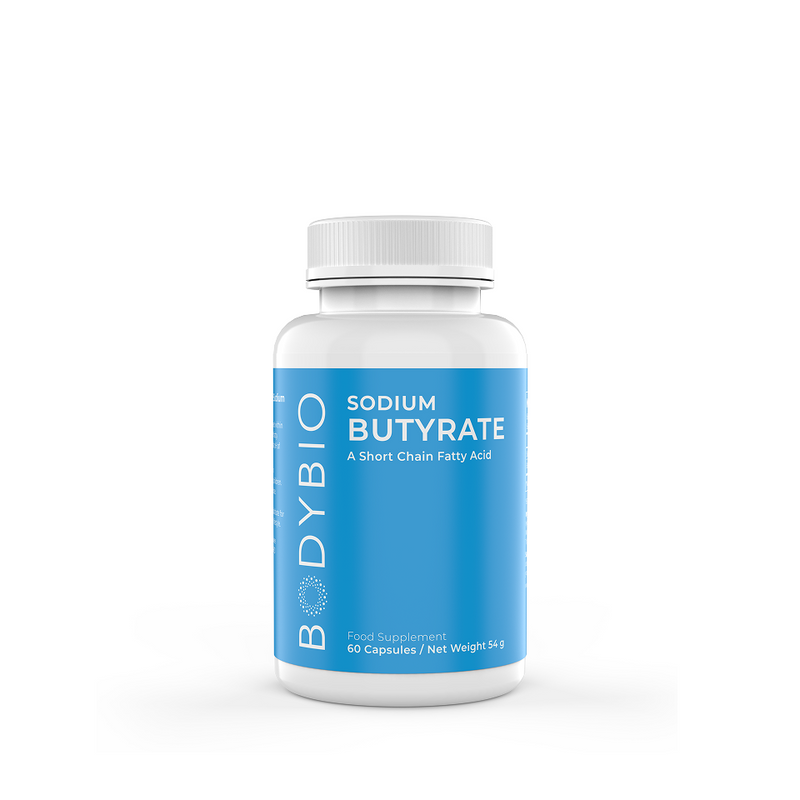7 Impressive Kefir Benefits & How to Make This Nutrient-Dense Probiotic Drink
Key Takeaways:
Key Points:
- Probiotics are best consumed through food sources (rather than supplements). Kefir is a traditional fermented probiotic drink that’s been around for centuries. The research doesn’t lie — kefir consumption is one of the best things you can do for your gut.
- Some kefir benefits include things like regulating blood sugar as well as promoting gut microbiome health, bone health, and even clear skin.
- When consuming kefir, we recommend you visit your local farmer’s market or local Amish community to find raw and grass-fed dairy. If you’re sensitive to lactose, kefir is naturally lower in lactose than other dairy products. However, A2 dairy (such as goat and sheep’s milk) can also be used to avoid dairy sensitivity.
Eating (or drinking) probiotics is one of the best ways to prioritize your gut microbiome. Traditional fermentation methods that create probiotic foods are more recognizable to our gut than probiotic supplements (which typically focus on quantity rather than quality).
So, if you’re struggling with gut dysbiosis or simply want to supercharge your microbiome — go ahead and consume all of your favorite probiotic foods like kimchi, yogurt, kombucha, and sauerkraut.
One probiotic food you may not have heard of is kefir. An ancient fermented milk drink, kefir is basically yogurt’s cousin, but with even more probiotics and a tangy flavor. Let’s dive into the kefir benefits and how you can make this delicious fermented drink a part of your wellness routine.
Table of Contents:
- What Is Kefir Milk?
- Is Kefir Good for You?
- The Nutrition Profile of Kefir
- 7 Impressive Kefir Health Benefits
- You Can Buy Milk Kefir or Make It At Home
- The Powerful Impact Of Prebiotics, Probiotics, and Postbiotics on the Gut
What Is Kefir Milk?
Kefir milk is made from kefir grains — little powerhouse cultures of bacteria and yeast that jumpstart the fermentation process. When kefir grains are combined with milk and left to sit for a few days, they create a kefir drink (fermented milk). The consistency is a bit thinner than yogurt, with a smooth pour and a slightly sour taste.
While it’s a traditional drink in some cultures, the taste may seem foreign to others. To get used to the taste, try adding it to a fruit smoothie for a sweet-and-tangy combo.
Water Kefir
If you’re sensitive to dairy or simply want a lighter carbonated beverage, you may enjoy water kefir. This kefir drink is made by combining sugar water and kefir grains, leaving them to ferment for at least 24-48 hours. It carries a lot of the same benefits as milk kefir (specifically the probiotics!), and can be flavored naturally with vanilla, orange, raspberry, almond, and other creative flavors.
Is Kefir Good for You?
Yes, kefir is extremely good for you! Similar to yogurt, it’s packed full of minerals, vitamins, and probiotics for gut health. It’s especially good for you (and less likely to upset a sensitive gut) when made with raw and grass-fed dairy or A2 milk.
The Kefir Nutrition Profile
Before we dive into kefir benefits, let’s check out the diverse nutrition profile of kefir. In addition to bioactive compounds like peptides, lactic acid, and organic acids, one glass of kefir contains healthy fats, protein, and carbohydrates.
Kefir Nutrition Profile (Approximate):
For one cup of full-fat kefir milk
|
Fat |
Carbohydrates |
Protein |
|
Around 8 grams |
5-8 grams |
8-11 grams |
Kefir is also a healthy source of vitamins and minerals, containing vitamin B12, magnesium, vitamin K2, phosphorus, potassium, calcium, and zinc. This nutritionally complete profile makes a glass of kefir an excellent snack or addition to any meal.
7 Impressive Kefir Health Benefits
What health benefits can you expect when consuming kefir? These are just a few of the many impressive kefir benefits.
1. Blood Sugar Regulation
Insulin resistance can leave you feeling groggy, hangry, and generally not yourself. Not to mention insulin resistance is a precursor state to type 2 diabetes.
You may not realize that the microbiome has a key role to play in reducing the severity of insulin resistance. In fact, the probiotics and peptides found in kefir are directly connected to blood sugar regulation and allow the muscles to utilize more glucose effectively.
In studies, kefir has shown astounding positive effects on patients with high blood sugar. Along with other blood-sugar regulating interventions (like a low-carb diet, inositol, and chromium), one cup of kefir daily may help to bring your A1C back into a healthy range.
2. Clear Skin
Chronic acne usually has a root cause, like excess sebum, hormone imbalances, mineral deficiency, or poor gut health. Kefir contains a number of the probiotics essential for healthy and glowing skin — and has been shown in studies to improve chronic acne. It’s also packed full of minerals, including many that are required for healthy skin. In one study, participants saw significant improvements in their acne and skin hydration.
3. Gut Microbiome Support
Kefir may contain up to 60 different strains of probiotics, and the type you find in your drink will depend on the region your kefir grains originate from. Probiotics help to rebuild the gut lining (guarding against leaky gut) while reducing overall inflammation levels. They help you digest fibrous foods and release healthy postbiotics like butyrate.
Microbiome health is a key player in relieving gut dysbiosis symptoms. Additionally, a healthy microbiome is linked to better neurotransmitter function, digestive health, and immune system wellness.
4. Natural Source of Vitamin K2
Vitamin K2 isn’t especially well-known among the essential vitamins, but it’s critical for heart health, bone health, and it plays an important role in blood clotting. If you bruise easily and take a long time to heal, you should look into vitamin K2 as a remedy.
If this is the first time you’ve heard of vitamin K2, it could be because it’s a difficult vitamin to consume in the Western world. It’s primarily found in organ meats and in fermented foods like kefir. While some vitamin K1 can be converted to vitamin K2 in the body, it’s usually not enough to curb a vitamin K2 deficiency.
5. Naturally Fights Germs and Unhealthy Bacteria
The microbiome in the gut is made up of a careful balance of good and bad bacteria. When good bacteria are thriving, bad bacteria are evicted from the gut microbiome.
The best way to ensure your microbiome is healthy and balanced is to eradicate the bad bacteria while amplifying the population of good bacteria.
Most antibiotics kill both bad and good bacteria, but the natural antimicrobials found in kefir specifically target bad bacteria. Not only that, but healthy probiotics add to the colonies of good bacteria already hanging out in the gut. This makes kefir a fantastic solution for holistic gut health.
One study concluded that kefir can even fight resistant bacteria like E. coli.
6. Builds Strong Bones
If you want to feed your children dairy products to encourage bone health, why not start with kefir? This fermented drink actually has more calcium than regular milk — and it contains the extra gut-boosting benefits of probiotics.
7. Low in Lactose
Kefir could be the solution for someone who struggles with lactose sensitivity, but still wants the nutritional benefits of dairy. During the fermentation process, lactose is actually converted to lactic acid — making it much easier for sensitive people to digest. If you make your kefir at home, you can use A2 milk or raw milk to further decrease any risk of dairy sensitivity.
You Can Buy Milk Kefir or Make It At Home
If you want to purchase the most natural kefir, we recommend reaching out to your local Amish community or farmer’s market. Kefir made with A2 dairy or grass-fed raw milk is more likely to retain the nutritional benefits and less likely to cause an upset stomach.
It’s easy to make kefir at home, too.
Here’s our kefir milk recipe:
- Add 1-2 tablespoons of kefir grains to a sanitized glass jar. Do not use any metal during this process.
- Cover with raw milk or A2 milk (around 1 cup of milk for each tablespoon of kefir grains). Make sure you leave space in the top of the jar for bubbly fermentation!
- Place a breathable cloth, coffee filter, or unsealed lid on the jar and let it sit for 24-48 hours. Put it somewhere at room temperature, without direct sunlight.
- Once your kefir is finished fermenting, it’s time to strain it. Pour your kefir mixture through a strainer and into another sanitized glass jar. You’ll notice the kefir grains are caught by the strainer. Save them for your next batch!
- Once strained, enjoy your kefir! It can be kept in the fridge for a couple of weeks and combined with other drinks, like smoothies.
The Powerful Impact Of Prebiotics, Probiotics, and Postbiotics on the Gut
We love a good dose of probiotics — but they’re much more powerful when paired with prebiotics (the food your probiotics are going to eat), and postbiotics (the beneficial nutrients your probiotics make). Our research shows that these three are a fierce combination against gut dysbiosis.
We created a supplement to support your faithful consumption of kefir and other probiotic foods. BodyBio Butyrate is an effective gut-supporting supplement for digestive wellness alongside a healthy diet.
Vieira, C. P., Rosario, A. I. L. S., Lelis, C. A., Rekowsky, B. S. S., Carvalho, A. P. A., Rosário, D. K. A., Elias, T. A., Costa, M. P., Foguel, D., & Conte-Junior, C. A. (2021). Bioactive Compounds from Kefir and Their Potential Benefits on Health: A Systematic Review and Meta-Analysis. Oxidative medicine and cellular longevity, 2021, 9081738. https://doi.org/10.1155/2021/9081738
Ostadrahimi, A., Taghizadeh, A., Mobasseri, M., Farrin, N., Payahoo, L., Beyramalipoor Gheshlaghi, Z., & Vahedjabbari, M. (2015). Effect of probiotic fermented milk (kefir) on glycemic control and lipid profile in type 2 diabetic patients: a randomized double-blind placebo-controlled clinical trial. Iranian journal of public health, 44(2), 228–237.
Kim, D. H., Jeong, D., Kim, H., Kang, I. B., Chon, J. W., Song, K. Y., & Seo, K. H. (2016). Antimicrobial Activity of Kefir against Various Food Pathogens and Spoilage Bacteria. Korean journal for food science of animal resources, 36(6), 787–790. https://doi.org/10.5851/kosfa.2016.36.6.787
Bourrie, B. C., Willing, B. P., & Cotter, P. D. (2016). The Microbiota and Health Promoting Characteristics of the Fermented Beverage Kefir. Frontiers in microbiology, 7, 647. https://doi.org/10.3389/fmicb.2016.00647
Tu, M.Y., Chen, H.L., Tung, Y.T., Kao, C.C., Hu, F.C., et al. (2015). Short-Term Effects of Kefir-Fermented Milk Consumption on Bone Mineral Density and Bone Metabolism in a Randomized Clinical Trial of Osteoporotic Patients. PLoS One, 10(12), e0144231. https://doi.org/10.1371/journal.pone.0144231
Alves, E., Gregório, J., Baby, A.R., Rijo, P., Rodrigues, L.M., et al. (2021). Homemade Kefir Consumption Improves Skin Condition—A Study Conducted in Healthy and Atopic Volunteers. Foods, 10(11), 2794. https://doi.org/10.3390/foods10112794










